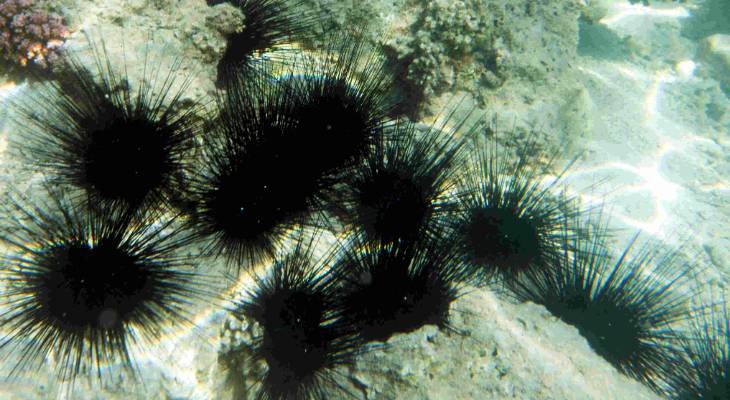The stony sea urchin is characterised by its pointy spines, which can be quite painful to step on!
In July 2023, the Environment & Resources Authority launched regulations (Legal Notice 149 of 2023) establishing a two year moratorium on the collection of sea-urchins. This moratorium will run until 7 July 2025, so it is currently illegal to collect sea urchins (known as ‘rizzi’ in Maltese) from Maltese seas.
This measure is being implemented to combat the studied decrease in the populations of the Stony sea-urchin. The Environment and Resources Authority, the Director responsible for Fisheries, the Veterinary Regulation Directorate and the Superintendent of Public Health are collaborating in enforcing these regulations.
The endangered species protected by this two-year moratorium is the stony sea urchin, a round sea urchin measuring up to 8 cm. The stony sea urchin is known for its variable colours, including violet, green, or brown. The preferred habitats of this species are generally stones, chalky algae, or rocks often covered by shell remains.
Sea urchins are essential to marine ecosystems, serving as a food source for various fish, starfish, and molluscs along the Mediterranean and eastern Atlantic coasts. By consuming algae, sea urchins also help maintain the balance of the ecosystem and potentially prevent invasive species from taking over.
However, if you’re an avid diver or snorkeller, you may have noticed that sea urchins are not as commonly seen as they were a couple of decades ago. The stony sea urchin, in particular, is harvested for its 'roe'—the soft, edible part that is highly prized in Mediterranean cuisine.
As a result, a severe decline in the population of this type of sea urchin has been reported in many Mediterranean areas, including Malta. This has led to the gradual adoption of protective measures in some EU countries, just like the two-year moratorium in Malta.
Another initiative is being conducted by Aquatic Resources Malta, which involves a restocking programme in which sea urchins will be cultivated and released into the seas.

ERA reminds the public that any illegalities observed in relation to protected species must be reported to ERA’s customer care on their website or by calling 22923500.
Have you come across any sea urchins recently?